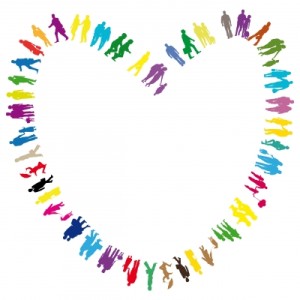 Loneliness and isolation are growing problems in this country, affecting both emotional and physical health. Who is at risk and what can you do?
Loneliness and isolation are growing problems in this country, affecting both emotional and physical health. Who is at risk and what can you do?
Who is at risk?
- Newcomers. Life as the newbie is lonely as you try to figure out the norms, rules and the politics of an unfamiliar environment. Deepening connections with people who seem to already have a set circle of close friends can seem extraordinarily difficult.
- New moms. Without a network of support, a new mother is at greater risk for postpartum depression. PPD affects 1 in 7 mothers according to NAMI.
- Caregivers. Adults 18 and older who care for both children and their elderly parents, while usually working full-time, make up the sandwich generation. Stretched to the limit, many caretakers feel guilty taking any time for themselves, driving depression and stress.
- Single moms. Without a support network that includes extended family or close friends, the demands and stress of parenting alone can overwhelm a single parent.
- Maxed out workers. Individuals who work and commute long hours, often say they don’t have time or energy for much social interaction or community involvement.
- Newly minted stay-at-home moms. A new mom whose main social network was at her former job may find herself at ground zero when trying to revive her social network––and too overwhelmed to try and figure out how to amend the situation.
- The elderly. These days, families tend to be more far-flung. Many seniors live far away from family or lack a sense of community, putting them at higher risk for health problems like dementia, chronic illness, and a 45% greater risk of dying earlier than other older adults. Connection is important for healthy aging.
- Parents of disabled children. A parent of a disabled child who has no one who she feels can relate to her situation may feel exceptionally lonely.
- Shy kids. Children who are shy, socially anxious or who have learning disabilities may find themselves orbiting around peer groups either blatantly rejected or unsure how to join in.
Why this matters to you…
Even if you aren’t socially isolated, you probably know someone who is at risk of isolation. Our lives are always in transition and like dominoes so go our social lives. Although we often find ourselves surrounded by people, finding our village can be much harder.
Isolation is a growing trend.
- One study found that the number of close friends that people felt they could discuss important matters with has dropped from three in the 1980s to one or zero today.
- More than 43% of adults reported that they were lonely.
- People are less involved in civic and community groups and fewer know their neighbors.
- In addition to depression, people who feel isolated are more likely to suffer from health problems including obesity, heart disease and cancer, and early mortality.
- Persistent isolation ravages our emotional health and creates a ripple effect of stress on the family.
What can you do?
- Welcome a new neighbor to the community.
- Invite a mom to join you at your next mom’s group meeting.
- Reach out to members of your mom’s group who don’t seem very involved and invite them join a committee that you are leading.
- Check in on your elderly neighbors.
- Create opportunities for get-togethers, like neighborhood pot-lucks, book clubs, dinner parties, kickball tournaments, neighborhood beautification projects, walking groups, etc.
- Offer a helping hand. Can you give a stressed out caregiver a break by watching her kids for a couple of hours? Can you sit with your friend’s newborn while she takes a much needed nap?
- Coach your child to help her learn strategies to make friends and get her involved in extracurricular activities that build confidence and encourage social interaction.
- Whenever the opportunity presents itself, strive for inclusion rather than exclusion.
If you feel isolated, do a little soul searching.
- What do you feel passionate about? Think about your personal purpose, beyond caring for your family.
- Are there ways to streamline your life to open up space in your schedule to engage in a social activity you enjoy?
- Are there activities that are no longer meaningful that can be cut from your schedule?
- What activities can you engage in with your family?
- Can’t find a group that fits your schedule or interests? Start your own.
- Make a plan with objectives and a goal for your personal life. My book Confidently Connected: A Mom’s Guide to a Satisfying Social Life can also help.
Illustration courtesy of FreeDigitalPhotos.net/xedos4
Please follow and like us:

Love this Christa and SO very true! These statistics are really eye-opening! Making time for ourselves is so important and finding that thing we do that is just ours makes everything better! Thank you so much for sharing!!